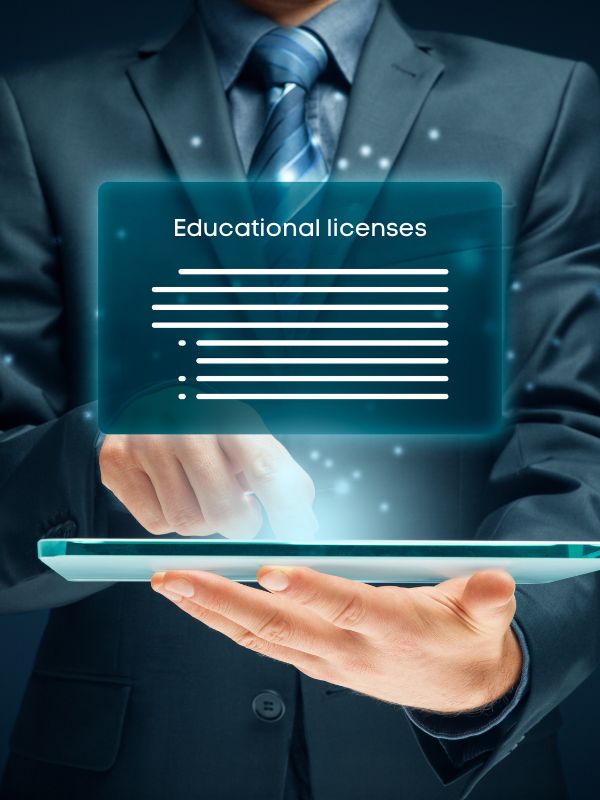
Business & financial planComprehensive support to develop financial plans and business models that meet MFHEA accreditation requirements and ensure institutional sustainability.
At Malta Quality Education, we specialize in helping educational institutions develop comprehensive business plans and financial models tailored to meet accreditation standards. Our expert team ensures that your institution is financially viable and fully prepared for long-term success.
Malta Quality Education – We help educational institutions navigate the complexities of licensing and accreditation, ensuring they meet the highest standards of compliance while leveraging their unique strengths to deliver exceptional learning experiences.
Business
Plans
We create detailed, institution-specific business plans that outline your educational goals and align with MFHEA accreditation requirements.
Financial
Sustainability
Our financial plans ensure your institution’s long-term sustainability, from startup projections to operational budgeting.
Compliance
MFHEA
We ensure that all financial and operational aspects comply with MFHEA guidelines and accreditation standards.
Fast-Track
Accreditation
We streamline the business and financial planning process to help you achieve accreditation faster and with fewer roadblocks.
How our business and financial planning supports accreditation
We begin by assessing your institution’s current financial status and educational goals. Our experts gather all relevant data to create a tailored plan that aligns with MFHEA requirements.
We develop financial projections that include operating costs, revenue streams, and capital expenditure, ensuring that your institution meets both short-term and long-term financial objectives.
Our team designs a comprehensive business model that highlights your institution’s unique value proposition, market positioning, and operational structure, all while ensuring compliance with regulatory standards.
We ensure that your business and financial plans meet MFHEA compliance criteria, preparing detailed reports that facilitate the accreditation process.


Types of licenses offered by MFHEA
Malta Further and Higher Education Authority (MFHEA) issues different categories of licenses based on the type and level of educational programs offered by the institution. Below are the main categories of licenses institutions can apply for, depending on the nature of their educational offerings.
University license
A license to operate as a University allows the provider to offer accredited higher education programs, including self-awarded degrees. To be eligible, the provider must be a corporate body and meet the criteria outlined by the MFHEA.
Target: Institutions offering higher education programs at MQF Level 5 and above.
Higher Education Institution license
This license permits the provision of accredited higher education programs that are either self-awarded or awarded by an external body. It includes programs pegged to MQF Level 5 or higher.
Target: Providers focusing on higher education but not classified as universities.
Further Education Institution license
A license to operate as a Further Education Institution allows the provision of further education programs pegged to MQF Levels 1 to 4. The institution must be a corporate body and may offer both self-awarded or externally accredited qualifications.
Target: Institutions offering vocational or general education below tertiary level.
Further Education Centre license
This license is granted to individuals (not corporate bodies) offering accredited further education programs up to MQF Level 4. It does not include the provision of higher education programs.
Target: Small providers or individuals offering specialized or vocational training.
Tuition Centre license
This license allows centers to offer non-compulsory educational courses that are not mapped to the MQF. These courses can cover general education or specific skills development.
Target: Providers offering supplementary education or specific training that does not lead to an accredited qualification.
Timing for licensing process
The timeline provided below offers an approximate guide to the typical steps involved in obtaining an MFHEA license. Please note that this timing is for reference only and may vary depending on the type of license being applied for, the complexity of the educational programs being accredited, and the responsiveness of the institution. While we strive to ensure a smooth and timely process, factors such as additional documentation requests or feedback cycles can extend the duration.
-
5–10 days
Application submission
Estimated Time: MFHEA receives and acknowledges the application.
-
2 weeks
Administrative vetting of the application
Estimated time: The application undergoes a review to ensure all required documentation is submitted. If anything is missing or incorrect, the applicant will be asked to correct it.
-
2 weeks
Issuance of invoices and payment confirmation
Estimated time: After the application is approved, invoices are issued and the payment is processed.
Duration: Approximately 2 weeks to receive invoices and confirm payment. -
Up to 75 days
Start of first step of evaluation process
Estimated time: Once payment is confirmed, the first step of the evaluation process begins with administrative verification of the documents, business plan and financial plan.. An officer is assigned to conduct an initial review.
Duration: Up to 75 days, depending on the license category and financial project. -
20 days
Assignment of expert evaluators
Estimated time: If the first step is successful evaluators will be assigned to evaluate the institution and its programs. The number of evaluators varies depending on the level of education (one to three evaluators for higher levels).
Another invoice will be issued to pay for the licensing and accreditation costs of the programs. -
Variable time
Feedback and corrections
Estimated Time: After evaluation, any required corrections or clarifications must be submitted within 3 months. If no feedback is provided within this period, the application is considered null and void.
Duration: Variable, depending on the time taken to address corrections. -
Conclusion
Conclusion of the process
Estimated time: Once all corrections are made and the application complies with all standards, the licensing process concludes with the issuance of the license.
Total duration: The entire process can take between 6 and 12 months, depending on the quality of the submission and the complexity of the institution.
